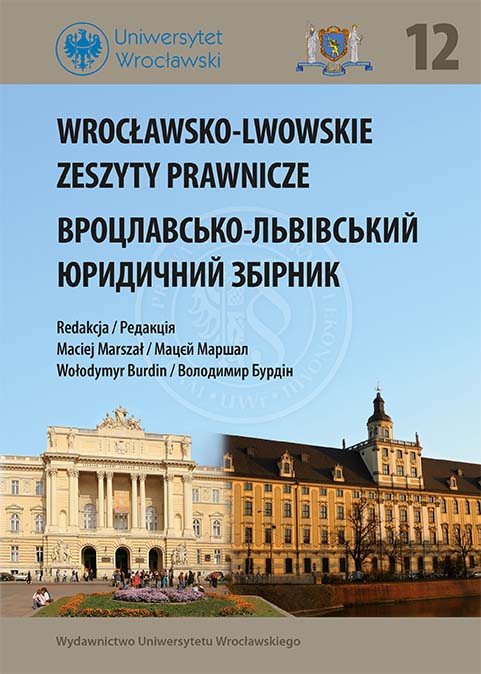

Articles

Peculiarities of legal regulation of remote work in Ukraine
The article is devoted to researching remote work in Ukraine. The author is focusing on the importance of separating from the concept of “remote work” such concepts as “telework” and “work from home”.
It is proven that remote work is the form of organization which has certain features. They include implementing work beyond employers’ premises per employee’s choice; presence of written agreement about remote work; ensuring job safety is done by employee; using information and communication technologies; allocation of time is done by an employee; the rules regarding internal working schedule are not applicable unless the working agreement states otherwise (however, the peculiarities of these rules are used while organizing remote work, for instance, right for free time for rest (switch-off time), an employee can interrupt any information-telecommunication connection with an employer, and it is not considered breach of working agreement or discipline); the rules on providing equipment, software and means to secure information are regulated by working agreement, otherwise paid by employer.
It is also highlighted that “remote work” and “telework” are different concepts. The latter is not regulated by national legislation. According to European Framework Agreement about telework, it is work with using information technologies within working agreement, when work which can be implemented on the employers’ premises, is implemented outside of it on a permanent basis. All the related working place equipment expenses are covered by employer. It is mandatory to inform about job safety, particularly while working with screen devices. Working time regulation is the same as for other employees, who work on the employer’s premises.
It is proven that work from home is one of the kinds of remote work, since such work is done beyond employer’s premises, which has been identified as a reason of assimilating these two concepts in legislation. However, these are two different concepts. Work from home has its specific peculiarities, for instance – it is done in a place of living of employee or in other premises per their choice; it is done with the aim to produce goods and services under employer’s control; it can be done by workers who can do not complex manual work of low qualification; generally accepted working hours of company or institution are to be complied with, unless working agreement states otherwise.
Cechy prawnej regulacji pracy zdalnej na Ukrainie
Artykuł poświęcony jest badaniu zdalnej pracy na Ukrainie. Autorka podkreśla wagę oddzielenia od pojęcia „pracy zdalnej” takich pojęć, jak „telepraca” i „praca w domu”.
Udowodniono, że praca zdalna jest formą organizacji pracy mającą takie cechy, jak: świadczenie pracy poza lokalem pracodawcy, według wyboru pracownika; dostępność pisemnej umowy o pracy zdalnej; zapewnienie pracownikowi przestrzegania norm ochrony pracy; zastosowanie technologii informacyjnych i komunikacyjnych w realizacji funkcji pracy; samodzielne dzielenie czasu pracy przez pracownika; brak zastosowania przepisów wewnętrznego regulaminu pracy, chyba że umowa o pracę stanowi inaczej (jednak oznaki tych przepisów są nadal obecne w organizacji pracy zdalnej, na przykład prawo do odpoczynku (okres odłączenia), przerwanie przez pracownika komunikacji z pracodawcą, i to nie będzie naruszeniem umowa o pracę lub dyscypliny pracy); procedura udostępniania sprzętu, dostarczania oprogramowania i sprzętu komputerowego, ochrony informacji i innych środków określa umowa o pracę, w pozostałych przypadkach opłacana przez pracodawcę.